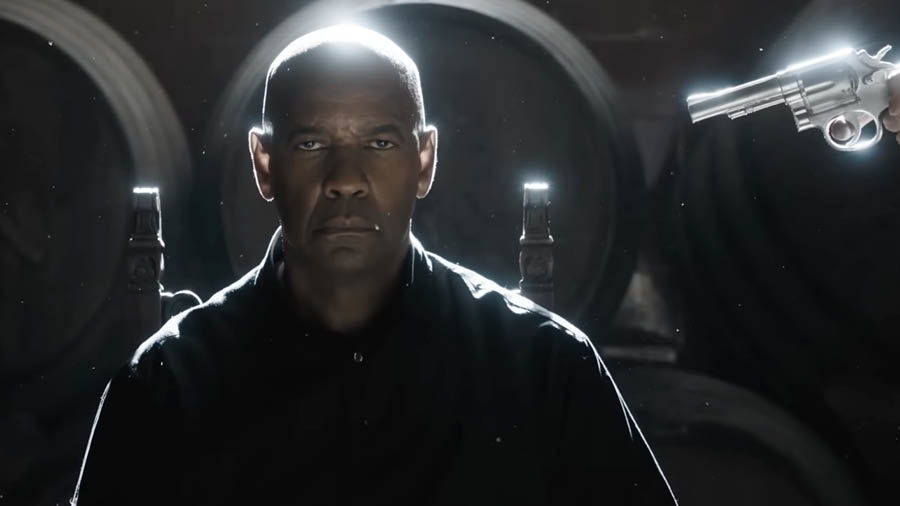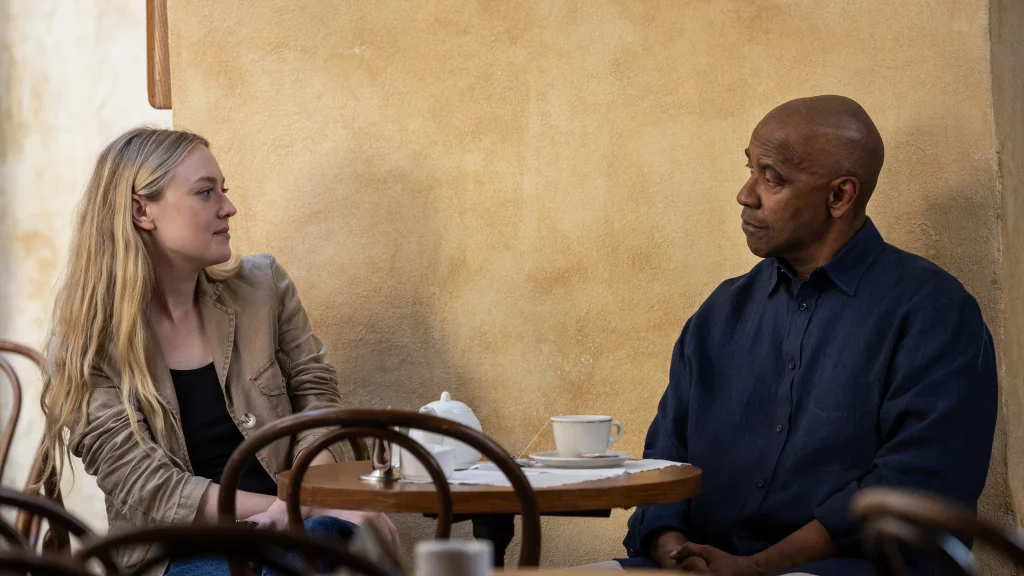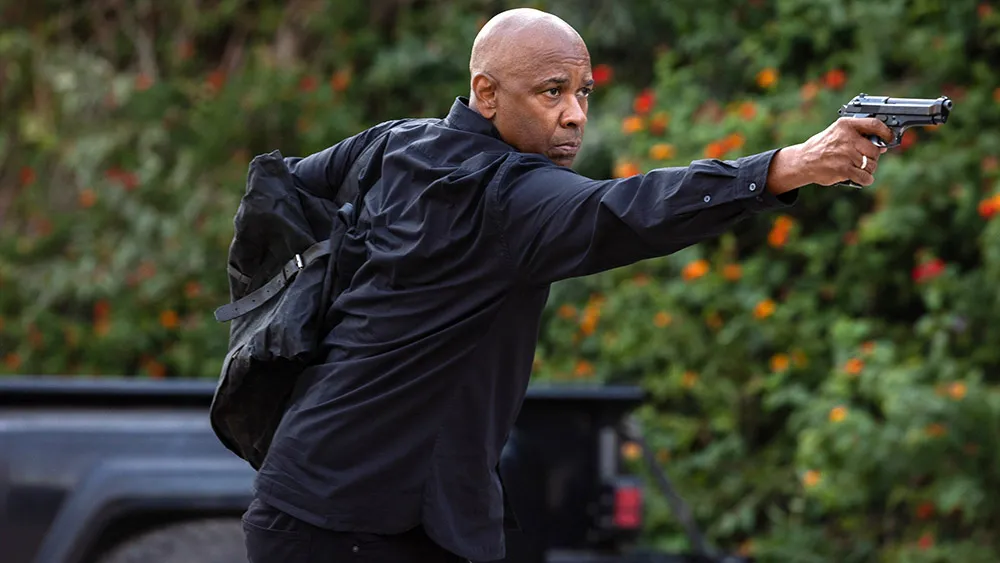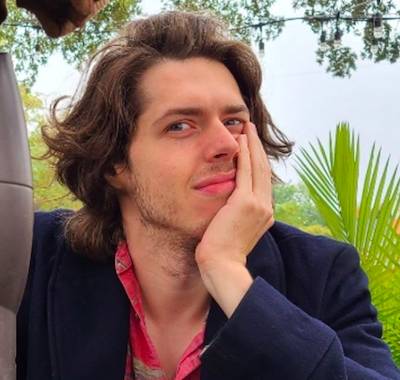“The Equalizer 3” Director Antoine Fuqua on Re-Teaming With Denzel Washington For Ferocious Finale
The Equalizer trilogy is a wrap. For the latest and supposedly final addition to the franchise, filmmaker Antoine Fuqua and his crew take Robert McCall (Denzel Washington, Fuqua’s longtime collaborator) to Southern Italy. Once again, this man of deep compassion but with an unparalleled gift for violence is tasked with protecting underdogs in a small seaside town on the Amalfi Coast under the bloody thumb of the mob.
It’s a lean, mean thriller that leans into Washington’s gravitas, the beauty of the environs, and Fuqua’s ability to build tension. The director behind Training Day, Brooklyn’s Finest, and Southpaw gives the action a lasting sting by making the stakes increasingly personal. Robert McCall was searching for peace, and he thought he found it in Southern Italy, among a people he grew to care for. When that’s threatened by the Camorra, McCall does what he does best, even if he came to Italy to escape the violence of his past.
Fuqua takes screenwriter Richard Wenk’s story of a man torn between the dark and the light and paints a vivid picture of a man caught between two extremes. “I have fun,” he told us. “I try to be authentic to the moment, but I actually have fun. Every time I watch a cut, I sit in a theater with popcorn and a Coke, and I’m laughing. It’s fun. That’s what it’s about. You have to remember that.”
We spoke to Fuqua about re-teaming with Washington, crafting the final chapter in Robert McCall’s saga, and more.
You got to make your spaghetti western and your aging samurai story. That was your vision, right?
Exactly. It’s written all over the all-black costumes and with the lighting, know what I mean? The efficiency of the killing, how quick it is, it’s like a sword. It’s just boom, boom, boom. But it’s a little darker.
As violent as the movie is, the imagery in Italy’s churches is far more violent.
More violent man. You look at the Caravaggio, and you got St John’s head cut off, and I went to the Caravaggio Museum in Naples. It’s vicious, man.
Was faith a crucial part of this story for you?
Absolutely. That’s when you see all the religious symbols and him going to the church, trying to keep the faith. It is difficult today to hold onto that faith even when you’re doing something so violent, and you find yourself starting to slip onto the other side a bit. How do you get back to the light?
What conversations did you have with Denzel about the physicality this time? He’s still quick, but the movie acknowledges the toll his body has taken over the years.
We talk about that stuff when he is working with the stunt coordinators and everybody. I always tell him it has to be something he can do. If he was a trained killer at that age, what would he do? He’s much more stealthy and quiet about how he gets to you than walking in the room with the Russians [in the first movie].
Cinematographer Robert Richardson shot McCall’s introduction in this movie beautifully. The smoke and the light reminded me a little of Tony Scott.
I was thinking more [about the painter] Giotto. Bob’s brilliant, by the way, but when Bob and I first saw that light, it was kind of there when we scouted, but then he really had this vision of the light. When we had McCall sitting in that black and all the elements floating around, it felt like a religious painting, and that’s where it came from.

What were some of your earliest conversations with Bob about what you wanted to achieve?
I know we didn’t want it to look like a postcard, so it was about trying to find the beauty, but still in the darkness, still gritty. And Bob started putting together images and sending me images when he would go out. Bob doesn’t sleep. I would get images from Bob at three or four in the morning, and I’m like,” Why are you waking me up?” And he’s like, “The sunlight is coming.” He captured all this stuff, and then we played around with it. It was almost black and white with the colors that were coming out, what it looks like right when you go there, the whitewash walls when you come into those tunnels, and then there’d be a little bit of blue somewhere, an old blue that’s probably been there forever.
Did you both talk about cinematographer Oliver Woods’ work on the previous films?
God rest Oliver. No, I see each movie as a separate film with the same character arc, but we never discussed any other films. It had to be something on its own separate from those, especially being the final one in this location.
Is it really the final one?
Yes. Don’t hold me to that, though. You’ll bring it up next time I see you.
[Laughs] Fair enough. The story is lean this time, mostly focusing on character and mood. How was it finding that patient but ultimately steady pace?
A lot of it is in the editing. We shot all the things we needed, and then it was in the editing, just trying to find that rhythm and pace, when you hold a little longer, and when to get this going. It was never really long. The longest it was, maybe a little over two hours, and then it was just chiseling away.

Throughout your career, have you sensed that audiences expect a faster-paced film?
Yeah. There’s this sort of formula at times, and that’s not always fair to the audience because they have more patience than we think. They enjoy particular actors and particular situations, and they enjoy watching it unfold. They like a little more mystery without being told everything. Don’t tell ’em everything. There’s a tendency to want it faster, faster, faster, but I like to give the audience a slow burn. All my films are really a slow burn. Training Day is a slow burn, and the first Equalizer is a slow burn. That’s where I like to live. It builds.
How’s it editing a Denzel Washington performance? Does he give you a lot of options?
No, he gives you what we discuss in the script and then some. I know Denzel, he’s in the moment so that Denzel will do something descriptive, and we’ll work it, and then he’ll do something completely different because I’ll say to him, “I like when you did this X, Y, and Z.” He’ll go, “Okay, what did I do again?” Because he’s in the moment, and sometimes I realize I’m never going to get that again because he’s so in that moment. It’s special. Sometimes, I’m surprised at what he’ll do, so we explore those things when I get to the editing bay with Conrad Buff.

For more upcoming films from Sony Pictures, check out these stories:
Ridley Scott’s “Napoleon” Trailer Reveals Joaquin Phoenix as the French Conquerer
The First “Dumb Money” Trailer Reveals the GameStop Stock Movie We Need Right Now
“Kraven the Hunter” Trailer Reveals Aaron Taylor-Johnson’s Wild Spider-Man Villain on a Rampage
Featured image: LAS VEGAS, NEVADA – APRIL 24: <> attends the Sony Pictures Entertainment presentation during CinemaCon, the official convention of the National Association of Theatre Owners, at The Colosseum at Caesars Palace on April 24, 2023 in Las Vegas, Nevada. (Photo by Ethan Miller/Getty Images)



